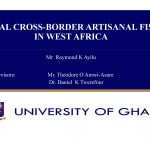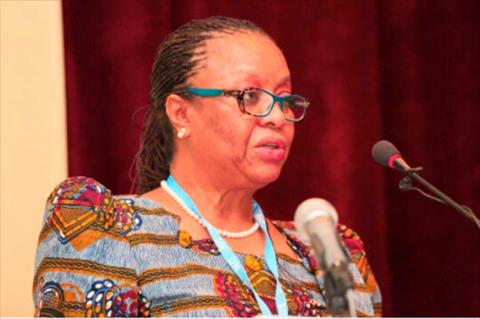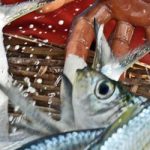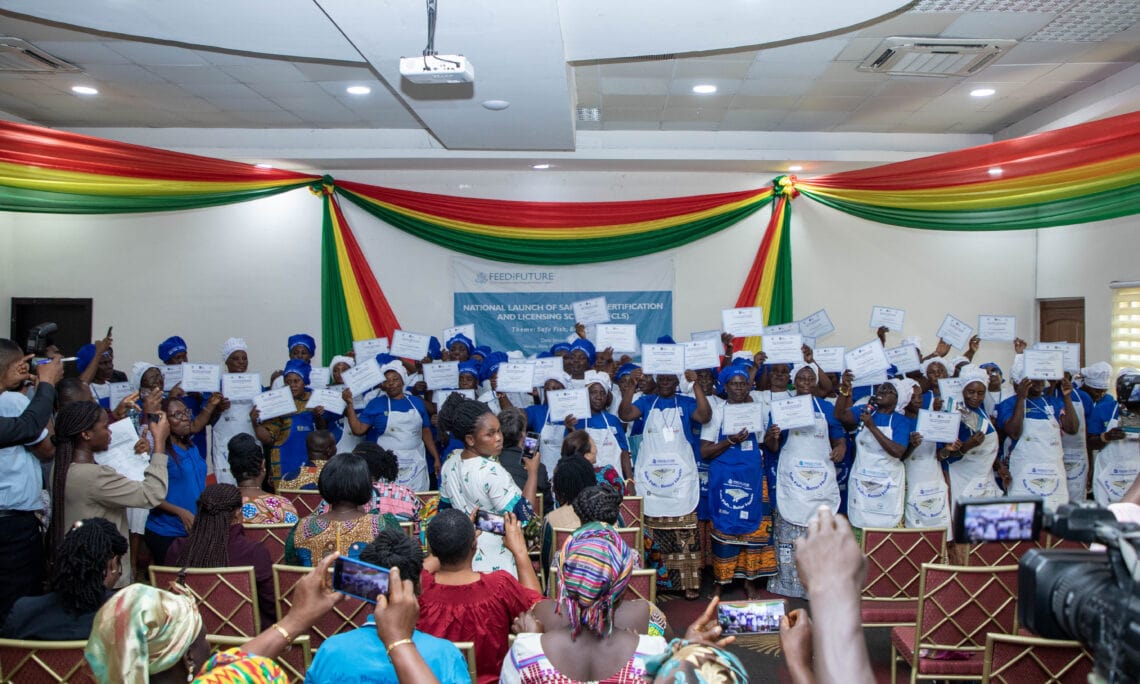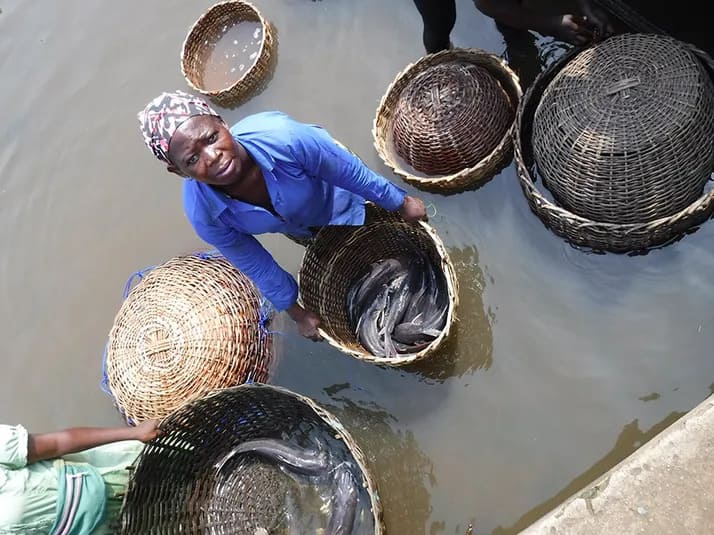Fish trade plays a significant role in shaping the harvesting and the use of fish, and plays an important role in the transition to sustainable fisheries. Fish trade enhances living standards and sustainable development as well as contributing to food security.
Artisanal fish processing and trading have a vital role to play in West African context, from social, economic and cultural perspectives. The export of fishing products is a significant economic activity to the Member States of FCWC constituting approximately 70% of the total catch of the Region – a special relevance for food security.
The FCWC is working to improve food security and reduce poverty through intra-regional fish trade in sub-Saharan Africa. We support and enhance the access to market and improve trading activities through supporting the development of good policies and effective national legal framework.
There are still several constraints and barriers to effective trade within the region which includes technology, information linked bottled necks, infrastructure deficiencies, and capital as well as tariffs and non-tariff obstacles that hamper the flow of fish and fish products trade within the region.
Some of the major challenges confronting the trade in fisheries products observed by FCWC includes, cold storage, packaging and storage, transportation, custom and exports formalities, market obstacles, inadequate availability of capital, under-standard unit of measurement, lack of trade information, currency convertibility and transfer barriers. The challenges points out that there is a huge gap within small scale fisheries Association and Actors in the FCWC region, therefore these Associations and Actors are unable to support, facilitate, mobilize and enhance their access to both domestic and regional markets.
In West Africa, fishing and trading in fish and fishery products

The Role of State and Non-State Associations

Fish Trade and Poverty Alleviation - WFC 2010
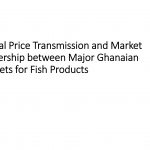
Spatial-Price-Transmission-and-Market-Leadership
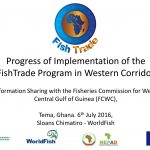
Lessons-learnt-FishTrade-Ghana

Effets-of-EU-fish-standards-on-Ghana
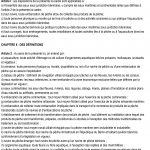
Cointegration-and-Seasonality-In-Ghanas-Traditional-Fish-Tra...
